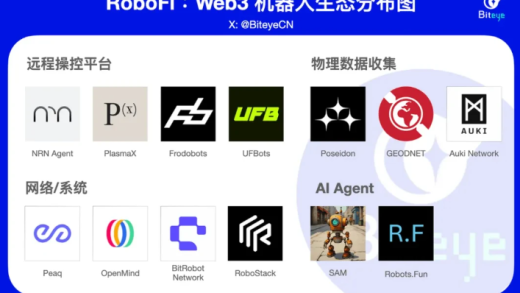I. Industry Risk Analysis
(1) Policy Risk
The family legal consultation hotline industry currently faces ambiguity in the policy – making stage and regulatory uncertainty in the implementation stage. The stricter qualification review for online legal consultations by the judicial department may lead to an increase in the entry threshold. Policy adjustments may require standardization of service processes (such as privacy protection and service filing), which will increase compliance costs. Differences in local regulations are likely to cause disputes over the legality of cross – regional operations. Moreover, the long policy evaluation cycle and delayed feedback may make it difficult for enterprises to respond promptly to compliance changes.
(2) Economic Risk
The family legal consultation hotline industry currently faces significant economic cycle risks. During an economic downturn, the disposable income of families shrinks, and the demand for non – urgent legal services is the first to be cut. The industry’s revenue is affected by cyclical fluctuations. Rising interest rates drive up the financing costs of start – up companies, increase the debt pressure, and make it difficult to support online customer acquisition and compliance costs when cash flow is tight. Low consumer confidence leads to a decline in the willingness to pay, and free alternative services (such as public welfare consultations and AI Q&A) further squeeze the market space. When the labor market recovers during the economic recovery period, core legal talents may flow to traditional law firms, and start – up teams face the dual pressures of talent loss and salary costs.
(3) Social Risk
Inter – generational consumption differences intensify market segmentation. Generation X prefers traditional law firms, creating a trust barrier. Millennials’ pursuit of cost – effectiveness suppresses their willingness to pay. Generation Z’s reliance on social media reduces the demand for paid consultations. The slow acceptance of new services by the elderly group further compresses the market space. The fragmented needs of multiple generations raise the cost of service standardization. Entrepreneurs face risks such as low customer acquisition efficiency, weak user stickiness, and difficulties in achieving large – scale profitability.
(4) Legal Risk
The family legal consultation hotline industry faces the risk of lack of qualifications. If employees do not have legal professional qualifications or the company fails to obtain a legal consultation service license, it may constitute illegal business operations. The risk of customer privacy data leakage is prominent. If sensitive information such as marriage and property collected during the consultation process is not properly stored, it violates the “Personal Information Protection Law”. The risk of improper promotional language is significant. Illegal promises such as “guaranteed victory” and “100% solution” are likely to trigger penalties under the “Advertising Law”. Improper preservation of consultation records leads to difficulties in providing evidence, which may trigger complaints or civil lawsuits due to service defects. The risk of tax handling is relatively high. Irregular income recognition and invoice issuance in the pay – per – use model are likely to trigger tax inspections. If the service content involves complex businesses such as international marriages and cross – border property division, it may exceed the scope of the business license and constitute out – of – scope business operations.
II. Entrepreneurship Guide
(1) Suggestions on Entrepreneurial Opportunities
The current entrepreneurial opportunities in the family legal consultation hotline industry lie in precisely targeting niche markets. For high – frequency family legal issues such as marriage mediation, inheritance, and custody disputes, build a dual – track service system of 24 – hour AI intelligent pre – diagnosis and real – time response from human lawyers. Develop standardized consultation processes and online signing toolkits. Focus on cooperation with community group – buying platforms for customer acquisition. Jointly provide public welfare legal popularization packages with sub – district judicial offices. Develop combined products of emotional comfort and legal guidance in line with policy hotspots such as the divorce cooling – off period. Output a series of paid knowledge content of the “Family Legal Emergency Handbook” through short – video platforms to build a professional IP.
(2) Suggestions on Entrepreneurial Resources
Focus on the efficiency of resource utilization and prioritize the integration of light – asset resources. Collaborate with community service agencies to embed online consultation entrances (WeChat mini – programs/official accounts) to reduce customer acquisition costs. Establish a case – source sharing mechanism with law firms instead of hiring full – time lawyers. Connect to the public welfare legal service platform of the司法局 to obtain government – subsidized traffic. Use free databases such as the Judgments Online to build a knowledge base for common family disputes, and use AI voice to automatically generate basic consultation reports. In the initial stage, conduct free legal popularization lectures in cooperation with sub – district offices to build customer trust, and then convert paid users through the 99 – yuan annual family membership fee model. When funds are insufficient, apply for digital service subsidy vouchers for small and medium – sized enterprises to purchase a call center system.
(3) Suggestions on Entrepreneurial Teams
Entrepreneurs in the family legal consultation hotline industry should form a composite team with both legal expertise and service sensitivity. It is important to recruit at least 1 – 2 lawyers with civil and commercial law practice experience as core members, and also配备 members with a background in psychological counseling or customer service to handle emotional appeals. It is recommended to set up a full – time legal service quality supervision position. Senior lawyers should review the compliance of consultation cases weekly. Through a cross – training mechanism, legal personnel should master basic communication skills, and customer service personnel should be familiar with common legal processes. Adopt the AB – shift cooperation model of “consulting lawyer + follow – up specialist” to ensure service continuity. It is recommended to reserve a 15% equity pool to attract strategic talents with resources in the judicial system. Establish a quarterly case review meeting system to strengthen the team’s ability to respond to new types of family disputes.
(4) Suggestions on Entrepreneurial Risks
Entrepreneurs in the family legal consultation hotline industry should first ensure that they have complete legal qualifications to avoid operating without a license or providing out – of – scope services, and regularly review business compliance. Establish a standardized consultation process and a service quality monitoring system. Reduce the risk of professional mistakes through the establishment of a case database and regular training for the lawyer team. Use encrypted communication tools and sign confidentiality agreements to strictly protect customers’ private data and prevent legal disputes caused by information leakage. Set up an automatic early – warning and manual review mechanism for high – frequency complaints in online consultations (such as response time and the practicality of solutions). Prioritize short – video and community group customer acquisition channels, reduce customer acquisition costs through lightweight content operations, and lock in cash flow in advance through package – style paid service design to avoid the high – marketing – investment model that overly relies on single consultations.





